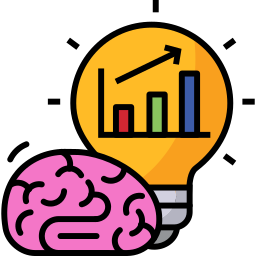Research

Development of a flexible episodic memory system
Episodic memory supports not only our ability to remember individual events, but also forms of flexible cognition that benefit from remembering multiple events. How discrete events are encoded, organized, and retrieved relative to one another thus impacts these other abilities. Part of my research examines developmental differences in these relational features of episodic memory and the neurocognitive mechanisms that underlie them. Some specific questions include:
- How do children develop the ability to encode and retrieve relations between memories?
- Are there developmental differences in how relations between events are represented at the neural level?
- How does the encoding and retrieval context impact the ease with which memories of related events are accessed across development?
Development of forms of flexible cognition
Our episodic memories provide content for other forms of flexible cognition. Future event imagination is thought to require accessing and then recombining remembered content to construct a novel future event that is plausible. Generating creative ideas benefits from the retrieval of multiple events. And, inferring new knowledge is facilitated by linking or integrating related events within memory. Part of my research examines how children develop the ability to engage in these forms of flexible cognition. This work involves elucidating the developmental trajectories of these abilities, as well as the neurocognitive mechanisms that support them. I am particularly interested in developmental differences in how top-down control processes interact with memory content according to retrieval goals (e.g., to come up with an imagined future event that is plausible). Some specific questions include:
- What is the developmental trajectory of forms of flexible cognition?
- What is the functional relation between these abilities and episodic memory across development?
- What is the role of top-down control processes—such as attention, working memory, and executive control—in the development of these abilities?
- How do developmental changes in the structure and function of the hippocampus, prefrontal cortex, and posterior parietal cortex support improvements in these abilities?


Role of experience in episodic future thinking
That memories provide content for imagined future events suggests that future event imagination is impacted by (1) what one has already experienced and (2) one’s ability to successfully encode and retrieve those experiences in memory. Importantly, the hippocampus—which is critical for successful encoding and retrieval—is especially sensitive to environmental adversity and enrichment. Part of my research bridges cognitive and social areas of developmental research to better understand how diverse experience impacts the ability to imagine future events across development. Some questions include:
- To what extent are imagined future events constrained by what one has already experienced?
- To what extent are memories of indirect experiences (e.g., events depicted in books or shared stories) incorporated into imagined future events across development?
- How do environmental factors such as familial relations, peer relations, and socioeconomic status impact the structure and function of the hippocampus across development?
Relation between forms of flexible cognition and resilience
Forms of flexible cognition allow individuals to construct “novel” content such as future events they may experience and creative solutions to problems. This novel content can help individuals adjust their behavior to changing environmental demands, which may promote resilience. In my future research, I plan to examine the relation between forms of flexible cognition and resilience. Some questions include:
- Do individual differences in forms of flexible cognition relate to adaptive behavior in challenging and uncertain situations across development?
- Do individual differences in forms of flexible cognition relate to psychological wellbeing in challenging and uncertain situations across development?
- Does experience with environmental instability impact the ease with which children engage in forms of flexible cognition?
